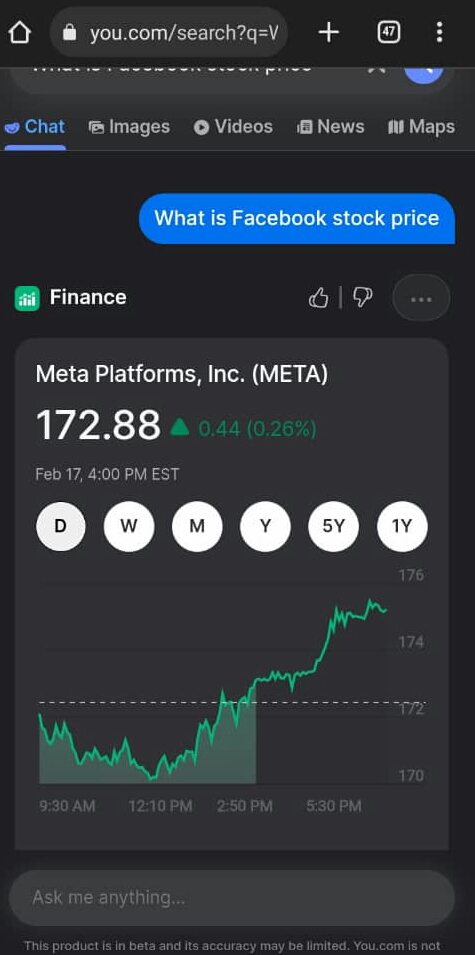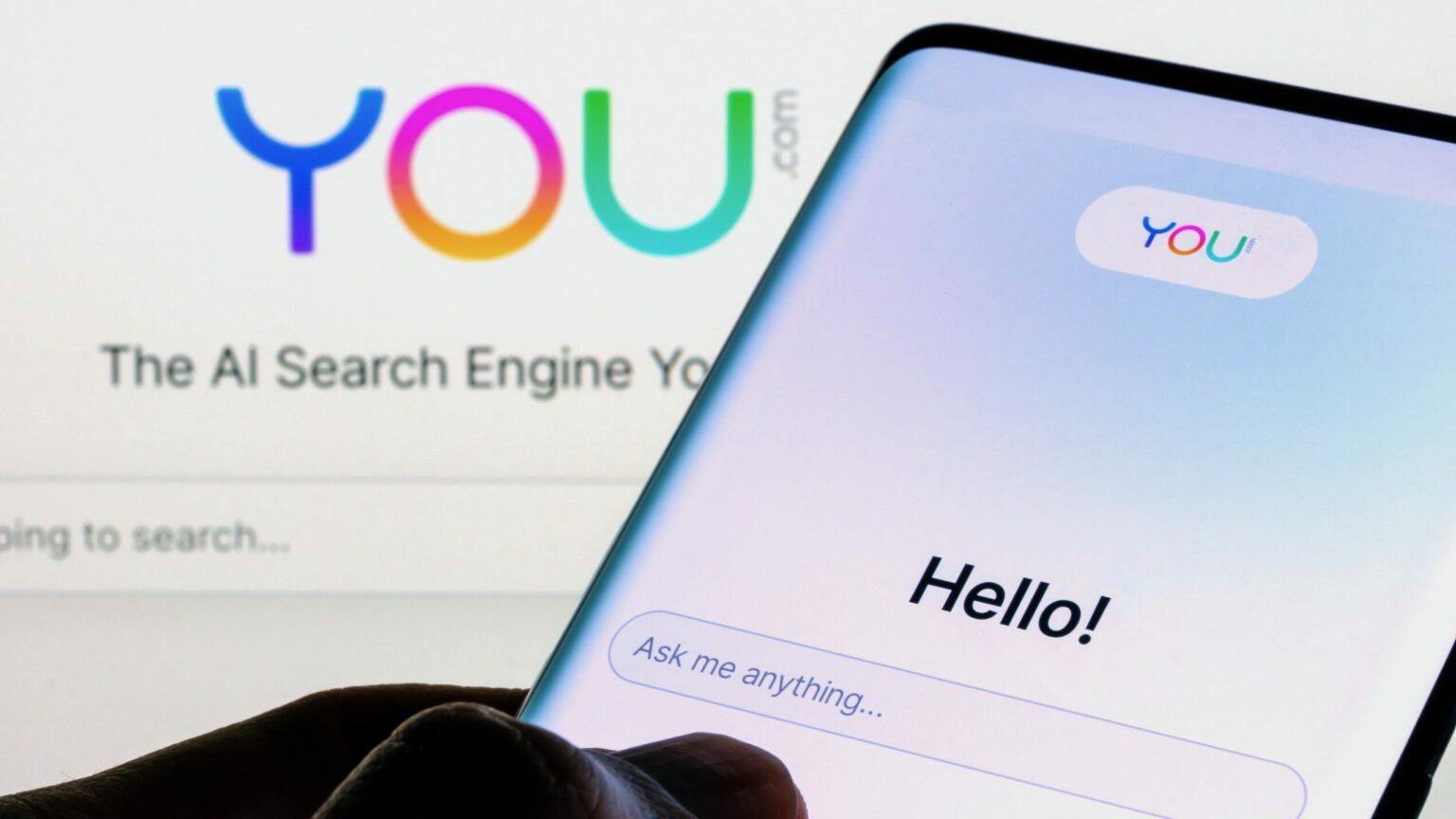Google search alternative You.com, launched in November 2021 with a promise of better privacy, is solidifying its position in artificial intelligence (AI) chatbot search, with a new and improved so-called “multi-modal conversational” search engine.
The San Francisco-based startup has been offering AI chatbot search since December 2022, when it launched its conversational tool known as “YouChat.”
Founder and CEO Richard Socher said the new bot, dubbed YouChat 2.0, incorporates more AI advances compared to its predecessor. Officially unveiled earlier this month, it combines advanced “conversational AI with community-built apps” to offer what he described as an “interactive experience with each query.”
🚨ᴘʀᴏᴅᴜᴄᴛ ᴜᴘᴅᴀᴛᴇ ᴀʟᴇʀᴛ🚨
🔊 Introducing ʏᴏᴜᴄʜᴀᴛ 2.0, conversational AI for search with more reliable info, rich media, and visual apps… 🧵
✅ Better answers
✅ Accomplish more
✅ Expand research
✅ Continue conversations
✅ Rich visuals
✅ Better accuracy— You.com (@YouSearchEngine) February 6, 2023
You.com aims to challenge Google, Microsoft
“With YouChat 2.0, our ability to minimize hallucinations and misinformation improved tremendously,” said Socher in a blog post.
“With its advanced generative AI capabilities, YouChat 2.0 evolves traditional search engine functions while giving users greater control over their information diet, and privacy,” he added in a separate interview with Venturebeat.
YouChat 2.0 uses a blended large language model called C-A-L (Chat, Apps and Links). The search engine provides a range of results from “charts, images, videos, tables, graphs, text, or code” embedded in answers to queries. It is already available publicly.
The launch of the multimodal conversational AI in search follows the recent unveiling of a remodelled and more powerful Microsoft Bing search engine. The new Bing includes the same kind of AI tech that powers OpenAI’s ChatGPT.
Likewise, Google debuted an AI chat service called Bard just over a week ago. It was a direct response to the threat from the new Bing and other conversational models. The launch was a disaster that cost the firm $100 billion in market value.
Users who tested Microsoft’s AI search report that Bing can produce nonsensical responses, referred to as “hallucinations.” From declaring undying love to a New York Times columnist to swearing at people and issuing veiled threats, Bing has had a very chaotic last few days.
“Microsoft has less to lose than Google, and it’s making money in other areas that could help support their AI efforts,” said Socher. “They have also announced plans to launch a new text-only chat interface, similar to ChatGPT, which is what You.com launched last year.”
A new type of search
The You.com search engine summarizes web results by indexing website categories, a departure from traditional search engines that provide a number of links.
Its multimodal conversational AI, YouChat 2.0, sums up elements beyond text and answers queries more accurately. It cites sources to the answers it provides, and allows users in chat to interact with content from apps such as Reddit, TikTok, StackOverflow, and Wikipedia.
A query MetaNews sent to YouChat for Meta’s stock price came with a chart showing the price.

Founder Richard Socher believes this is a “big leap forward” for chat-based search engines. He says it is a much smarter way of answering those kinds of queries. The same modalities can be interchangeably applied to other questions “depending on their context.”
“Instead of making up a bunch of numbers, which every other language model would do, we’ll just show you our stock app right there inside the conversation,” Socher told TechCrunch.
“It’s a big step forward to get large language models to be multimodal, in the sense of the different modalities being text, but also code, but also tables, and also graphs and images and interactive elements. And sometimes that is the best way to answer your question. I truly believe that this is a better way to represent the answer to the question than any text could be,” he said.
‘You can call me YouBot’
While You.com calls its chatbot YouChat, the bot insisted that its name is YouBot. “What do I call you?” we asked; “You can call me YouBot,” it replied, and subsequently refused to be called by any other name.
Also read:Is the New AI Search You.com Better than Google?
Socher was coy about sharing details of the tech underpinning his search engine, concerned rivals might steal the technology before it became profitable for his company. So we asked the bot, “What technology do you use for search?” It said it uses a combination of natural language processing (NLP) and machine learning algorithms to power its search engine.
“We use NLP to process and understand the query, and then use our machine learning algorithms to search through our database of documents to find the most relevant results,” the YouBot confirmed when prompted.
“We also use various other technologies such as artificial intelligence (AI) and deep learning to enhance our search capabilities.” But that’s all it could share, opting, like its creator, to preserve a sense of secrecy.









 and then
and then